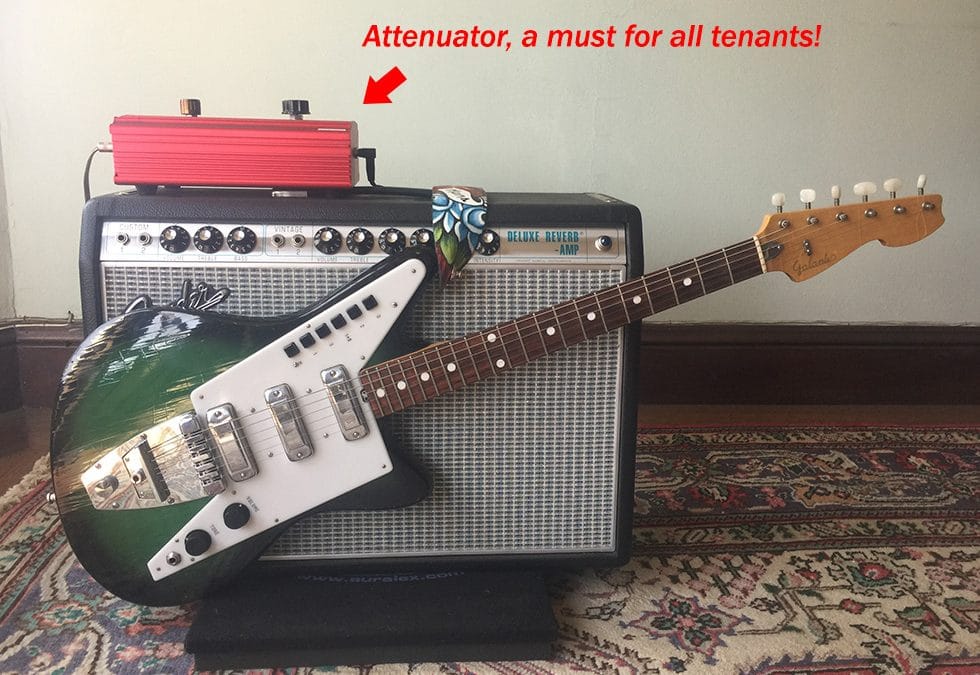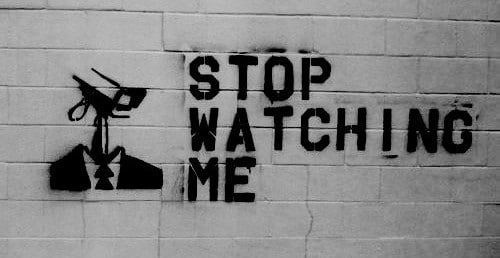
Surveillance Camera Pointed at My Door, What Can I Do?
Surveillance Camera Pointed at My Door, What Can I Do?
I’m a 14-year rent controlled tenant in the TenderNob. Two years ago my landlord surreptitiously trained a surveillance camera well-disguised as a smoke detector at my unit door—and only at my unit door. In fact, it’s the only camera in the entire building, a building with a long history of mail package thefts in its lobby.
The camera was ostensibly placed in front of my door in anticipation of an eviction filing to come the following calendar year, to collect evidence for said filing in other words. The rather flimsy nuisance eviction attempt never came close to trial, though exactly one deposition was taken and the stress of the whole thing totally dominated by 2017. But the camera, for the most part, flopped as an evidence collection tool, on this occasion at least.
But now the camera-cloaked-as-faux-smoke-
To be clear, the camera is placed on the common hallways ceiling (8.5-9’ high) and is about 8 feet in front of my unit door. Based on the still frames that were discovered in last year’s aborted eviction, the camera only captures my door, no others, and only records individuals who enter and exit my unit. And the camera can see inside my unit, but only just about 4-5 feet into my entryway/hallway area. The camera ostensibly never stops recording my unit door and has been doing so since summer 2016.
The party line among the various legal counsel to whom I have spoken about this, is that such tactics are per se legal, even under our comparatively tenant-friendly SF Rent Ordinance, because landlords can always place cameras in their common areas and that litigating such tactics would be a total waste of time for any tenant in my position.
After almost 2 full years of non-stop, targeted surveillance, these security camera bromides are getting harder and harder for me to swallow. Don’t such targeted surveillance cameras violate at least the spirit and intent of our Rent Ordinance by applying undue pressure on specific tenants like me to give up their longstanding, well-below-market rental units with the apparent intent of tenant turnover and increasing the yearly value of such a unit two or threefold?
Is there really nothing that can be done under the Rent Ordinance or at the Rent Board to challenge such heavy-handed landlord tactics? Doesn’t the now long-term nature of the surveillance targeted at me at least make it more egregious and potentially more actionable? What if this lasts for another 15 years? When, if ever, does targeted 24/7 unit surveillance cross over the line into landlord harassment? Please examine this from all the angles, as I know I am not alone and this problem is sure to only get worse as such technology becomes more mainstream and affordable.
The “bromides” to which you refer, reflect a common apathy about the use of surveillance cameras everywhere—the slowly boiling frog approach to an “inevitable” societal slide into a police state. As long as we accept, without question, a surveillance state, the short answer to your question is: no, there isn’t much that can be done.
The rationale for the use of surveillance cameras.
Any policy adopted to diminish the right to privacy, finally recognized as a constitutional guarantee in Griswald v, Connecticut (1965) 381 U.S. 479, will be based upon an urgent need that trumps that right, e.g. national security, crime prevention, etc. Landlords often justify a decision to install surveillance cameras outside and in the common areas of a building as bid to to provide a safe, secure residential environment. Landlords will point out that they have a duty to their tenants to do so.
The landlord’s duty.
I read several California cases that define a landlord’s duty to provide security for tenants:
“Out of the generic obligations owed by landowners to maintain property in a reasonably safe condition, the law of negligence in the landlord-tenant context has evolved to impose a duty of reasonable care on the owner of an apartment building to protect its tenants from foreseeable third party criminal assaults. Thus, the question of a landlord’s duty is not whether a duty exists at all, but rather what is the scope of the landlord’s duty given the particular facts of the case?” —Vasquez v. Residential Investments (2004)118 Cal.App.4th 269
“The scope of a landowner’s duty to provide protection from foreseeable third party criminal acts is determined in part by balancing the foreseeability of the harm against the burden of the duty to be imposed. In cases where the burden of preventing future harm is great, a high degree of foreseeability may be required. On the other hand, in cases where there are strong policy reasons for preventing the harm, or the harm can be prevented by simple means, a lesser degree of foreseeability may be required. Duty in such circumstances is determined by a balancing of ‘foreseeability’ of the criminal acts against the ‘burdensomeness, vagueness, and efficacy’ of the proposed security measures.” —Yu Fang Tan v. Arnel Management (2009) 170 Cal.App.4th 1087.
Generally, intervening criminal acts will negate a landlord’s duty to a tenant if the criminal act was unforeseeable. For example, if a tenant is mugged outside of his or her building by an unknown assailant, usually the landlord will not be held liable. The law can impose landlord liability for criminal acts when the building is located in a high crime area and/or the landlord is informed of a specific threat and does nothing to prevent it. California cases have found a landlord liable for refusing to repair security gates, ignoring repeated requests by tenants to repair, for a subsequent rape in the building. A landlord breached his duty when he received prior written notice that a tenant in the building had brandished a shotgun at another tenant and a visitor in an angry and threatening manner. A landlord had duty to replace missing glass on apartment door murderer used to obtain entry
Foreseeability as a crucial factor in determining the existence of duty. A duty to take affirmative action to control the wrongful acts of a third party will be imposed only where such conduct can be reasonably anticipated. Ann M. v. Pacific Plaza Shopping Center (1999) 6 Cal.4th 666.
All of the cases I read imposed liability upon a landlord who failed to act given the specific foreseeability of the given act. None of the cases imposed a duty to provide security guards in in a building because the court assessed that providing such guard would impose an undue burden upon the landlord despite foreseeability. I could not find any cases that established a landlord’s duty provide camera surveillance in a building.
Your landlord may justify the installation of the camera for safety and security of the building, but as far as I can tell, he does not have the duty to provide it, nor would he be able to prove its efficacy to provide safety or security, nor would he be liable for unforeseen criminal liability, despite the surveillance.
Surveillance does not prevent crime.
After the Boston Marathon bombing a great deal of attention and praise was lavished on surveillance systems, public and private, aiding in the apprehension of the bombers, but the surveillance did not prevent the bombing.
“An increasing number of American cities and towns are currently investing millions of taxpayer dollars in surveillance camera systems. But few are closely examining the costs and benefits of those investments, or creating mechanisms for measuring those costs and benefits over time. There is extensive academic literature on the subject—studies carried out over many years—and that research strongly indicates that video surveillance has no statistically significant effect on crime rates.” —ACLU Expert Findings on Surveillance Cameras.
The ACLU report cites serval studies done in Great Britain and the United States.
There may be some small impact on property crime. Think the TV commercials that show the would be thief about ready to grab your Christmas gifts from the front porch when he notices the camera and decides to pick another house.
Cameras installed in an LA housing project may have played a role in preventing a substantial escalation of crime relative to surrounding areas, since the housing project was the site of a gang war during the period of the study. Yet, “meta-analyses from the UK, along with preliminary findings from the US, indicate strongly that video surveillance has little to no positive impact on crime.”
The true aim of surveillance—compiling dossiers and exerting control.
“We are not safer from terrorism with security cameras in our cities. Particularly terrorists who are willing to die, security cameras do not control their behavior. They would not stop them from planning to pull off an attack. Cameras don’t just watch criminals, but they watch everybody. Someone visits their psychiatrist every Monday at two in the afternoon, traveling through public spaces. Where they’re going is known to nobody, but a network of cameras could pull that out of obscurity. That info is known to government officials.” —Jim Harper, Director of Information Policy Studies at the Cato Institute.
I suspect that ubiquitous surveillance in this country will be used to more and more to compile dossiers and to eventually disrupt (or worse) dissidents, troublemakers who would wrest control from the privileged few, like landlords.
In my experience landlords only spy on a specific tenant for two reasons: 1) to determine if a tenant principally resides in his or her rent controlled unit, and 2) to make a tenant uncomfortable in his or her home. Despite the fact that the landlord tried to evict you for an alleged nuisance does not justify the surveillance and, as you pointed out, the surveillance evidence flopped and was likely inadmissible at trial. But the cameras keep rolling and you’re not ready for your closeup.
Your landlord has gone full Dick Cheney on you and his continued surveillance demonstrates my earlier point that he is compiling whatever evidence he can and, yes, harassing you in the process.
Can you call the cops for this type of landlord surveillance?
The disguised camera is only pointing at your doorway, which indicates that the landlord has singled you out, but California law only punishes those who attempt to procure confidential communications or who want to snoop for more salacious purposes.
California Penal Code § 632(a) provides: “A person who, intentionally and without the consent of all parties to a confidential communication, uses an electronic amplifying or recording device to eavesdrop upon or record the confidential communication, whether the communication is carried on among the parties in the presence of one another or by means of a telegraph, telephone, or other device, except a radio, shall be punished by a fine not exceeding two thousand five hundred dollars ($2,500) per violation, or imprisonment in a county jail not exceeding one year, or in the state prison, or by both that fine and imprisonment.”
The case law interpreting Penal Code § 632(a) construes the statute rather narrowly. It’s unlikely you could prove that the landlord, by installing the camera intended to eavesdrop in this manner…maybe yes, maybe no.
California Penal Code § 647(j)(3)(A) states: “A person who uses a concealed camcorder, motion picture camera, or photographic camera of any type, to secretly videotape, film, photograph, or record by electronic means, another, identifiable person who may be in a state of full or partial undress, for the purpose of viewing the body of, or the undergarments worn by, that other person, without the consent or knowledge of that other person, in the interior of a bedroom, bathroom, changing room, fitting room, dressing room, or tanning booth, or the interior of any other area in which that other person has a reasonable expectation of privacy, with the intent to invade the privacy of that other person..”
On the other hand it would also be difficult to prove, despite the fact that there is something wrong with him, that the landlord is a peeping Tom. So calling the cops probably isn’t the answer.
Finally, Rent Ordinance § 37.10B(a)(13), does provide: “No landlord, and no agent, contractor, subcontractor or employee of the landlord shall do any of the following in bad faith: Interfere with a tenant’s right to privacy.” While it seems like you might be able to prove a case for harassment under the Rent Ordinance, without direct reference to surveillance like you have described in the Ordinance, a court would likely apply the more restrictive California law. Winning a case based upon your particular facts would be very difficult.
Here’s my bromide: If it looks like harassment, feels like harassment and smells like harassment, but it’s not explicitly defined as harassment, surveillance will not be considered to be harassment of tenants or anyone else until the lackadaisical public attitude changes toward widespread surveillance.





 The Costa Hawkins Rent Housing Act, a bi-partisan law enacted in 1995 by the band of pandering griftocrats we call our state legislators, that eviscerated local rent control.
The Costa Hawkins Rent Housing Act, a bi-partisan law enacted in 1995 by the band of pandering griftocrats we call our state legislators, that eviscerated local rent control.


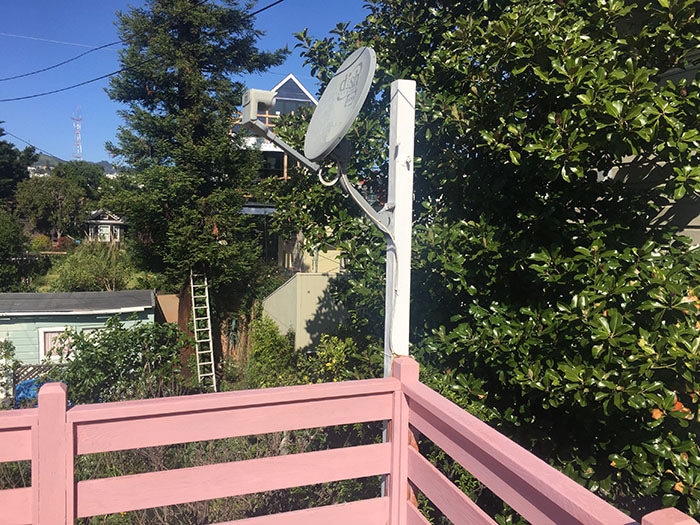
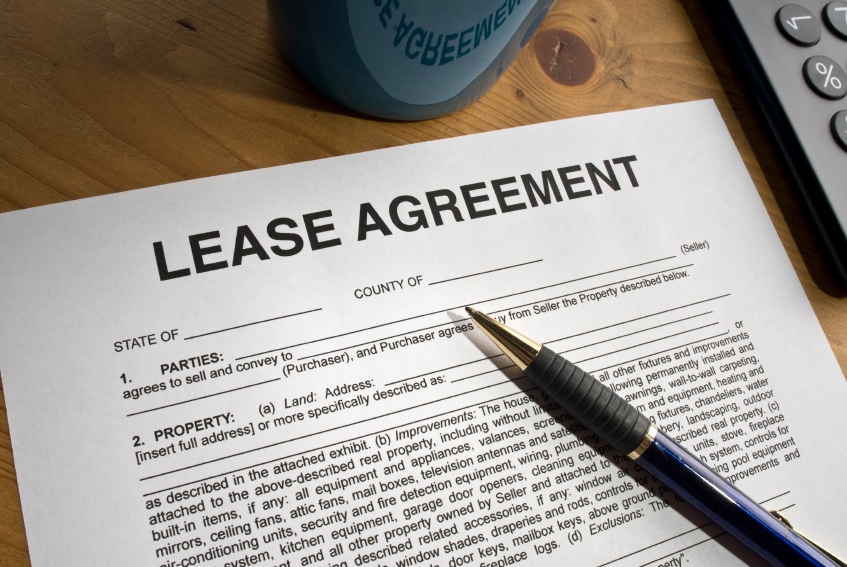


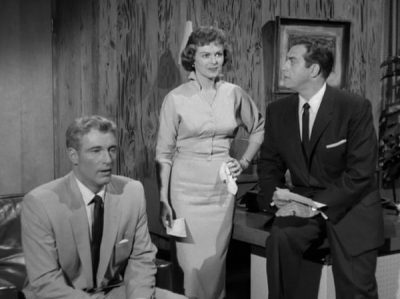 This is a dance you probably shouldn't try to do by yourself. Almost all tenants need a lawyer to lead. You likely have a better chance buying a house than you do prevailing in an unlawful detainer by defending yourself.
This is a dance you probably shouldn't try to do by yourself. Almost all tenants need a lawyer to lead. You likely have a better chance buying a house than you do prevailing in an unlawful detainer by defending yourself.